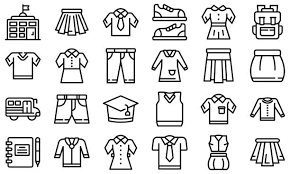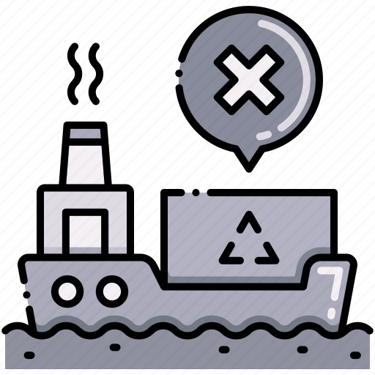They may have
Outgrown
their uniform but
that piece of clothing
has not reached the end of its life
until it is
Outworn.
Our Story
Outgrown was founded by three mothers who crossed paths as parent volunteers for our children's school's second-hand uniform sale. Being deeply passionate about the environmental impact of our material consumption, we committed a lot of effort and time to developing a strong system of community circulation of preloved school uniform at our children's school.
Seeing that the success of the preloved uniform project is very much dependent on the voluntary support of parents, we find that too important a task to leave to chance and goodwill. Therefore, we took it upon ourselves to expand the good work by setting up this social enterprise.
Our ultimate goal is to be able to extend the life-span of each piece of school uniform, by making it convenient for all users, with zero impact on the environment.
Your child's outgrown (but not outworn) uniform deserves a second (or more) lease of life. Please do not let it end up in the landfill.


How we are Making a Difference
Our eco Strategy


By bringing the entire shopping process online, you have all these eco-friendly options literally at your fingertips! Search, browse, choose and pay with greater convenience. No more rushing for uniform sales at school or digging for cash. What's more, you can buy 24/7, all year round. No more having to track the next uniform sale on your calendar.


By working with local tailors, we check for stains and defects in all donated uniform and do our best to repair all the fixable items. Repaired and useable items will be sold as 'Outlet' or 'Stained'.


By maintaining our storage facility locally and engaging people within the vicinity, we make flexible living-wage work accessible to the local community.
By collaborating with local Parent-Teachers Associations, we ensure a smooth process of uniform collection and information updates. We also contribute to the PTAs by reinvesting 50% of the profits into PTA-related activities, bursary funds or their chosen charity.


By staying local, we are able to have your orders delivered with zero-emissions electric vehicles or bicycles, but still work within a 3-5 working days delivery window.


By using only sustainable recycled packaging, we ensure that no additional resources are wasted or harmful to the environment while getting the preloved uniform to your home.


By reinvesting at least 35% of the profits into research, outreach and public education, Outgrown CIC maintains its ethos as a self-funded social enterprise that keeps working towards expanding our social impact.
Why do we Care?
Understanding the Environmental Impact of your school Uniform


To grow enough cotton to make just one t-shirt requires around 2,700 litres of water. 342 million barrels of crude oil are used every year to produce synthetic polyester textiles. A single 6kg domestic wash has the potential to release as many as 700,000 microplastic fibres. Cotton and polyester are the two most common fibres used for school uniforms.
The textile industry is responsible for 20% of global freshwater pollution and 8-10% of the world’s greenhouse gas emissions.
Once they end up in landfill, natural textiles can take hundreds of years to decompose and can release methane and CO2 gas into the atmosphere as part of this process.
Synthetic textiles are designed not to decompose which means that in landfill, they can release toxic substances into groundwater and the surrounding soil.
Current textile recycling methods turn less than 1% of non-rewearable materials back into new textiles.
Only 6% of donated clothes are actually sold in UK charity shops.
The rest go to for-profit aggregators, who package the clothes in bales for export, mostly to Pakistan, Ghana and Poland. In one such market in Ghana, 15 million articles of clothing are received every week.
The UK is the second largest exporter of used clothing in the world, after the USA. But exporting used clothing overseas only pushes the end-of-life problem somewhere else.
Although intended for reuse, almost half of these exports are discarded.
90% of these discarded items are incinerated and 10% landfilled. An estimated 11 million items of clothing are going to landfill every week.
Parents, on average, are forced to spend between £315 and £337 per year on school uniforms. However, only 1-3% of the retail price of the garment is paid to the garment workers.
In Europe, the UK consumes the most clothes per person but uses them for the shortest period.
An average consumer throws away 31.75 kg of clothing per year. Of this, 1.4 million wearable school uniforms are thrown away each year.





